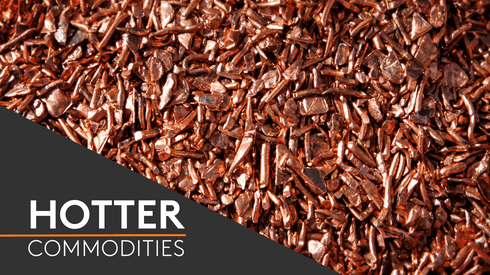Those alternative options cover settlement price, volumes, locations as well as discounts against benchmark premiums.
Floating settlement
Rather than selling all cargoes based on a long-term basis, major cathode producers, including Codelco, are offering a certain volume of material under floating settlement to their customers.
Several Codelco’s customer raised this suggestion to the producer during their meetings in the middle of this year, and some companies have confirmed that floating settlements will be an option available to them from 2017.
One trading source said only customers that book over 1,000 tonnes each month from Codelco will qualify for the floating settlement option.
“It doesn’t mean that all your volumes in the contract to be settled on a floating basis; there has to be, for example 30% or more, which is settled on fixed prices,” the trading source said.
Due to falling copper premiums during the past two years, many buyers who signed long-term contracts incurred losses due to the big gap between the contractual and spot prices.
Shanghai copper premiums assessed by Metal Bulletin averaged about $60s in the year to date, compared with the benchmark of $98 per tonne for the year. In 2015, the average assessment by Metal Bulletin was in the $80s, whilst the benchmark for the year was $133 per tonne.
“Sellers in Japan and South Korea are also open to talking about this floating [settlement] suggestion,” the trading source added.
Flexible location
Some trading sources told Metal Bulletin that a flexible location option is also a new option in their long-term contracts.
“You needed to have a good relationship with producers if you wanted to change your cargo destination port in the past, but now this is becoming negotiable when we sign the contract,” a second trading source said.
Due to the lower copper premiums in Shanghai for most of this year and high incentives offered by warehouses around China, many traders have been trying to change their cargo destination since the second quarter. This caused deliveries to London Metal Exchange warehouses in Asia to surge and resulted in high stocks in South Korea, Singapore, Malaysia and Taiwan.
Incentives offered by warehousing companies outside China reached as high as $50-65 per tonne during this year, almost matching premiums in Shanghai.
Under this new flexible location option, premiums in South Korea could be comparable to Shanghai as freight costs to those two areas are almost the same. However, changing to other locations is likely to incur a penalty of some dollars, a trader told Metal Bulletin.
Discounts
Last year, after the annual benchmark $98 per tonne was offered to the market, some big buyers were rumoured to have secured a discount of some $5 against the benchmark.
Now, more buyers have been discussing a discount when negotiating the long-term contracts.
“I think producers need to pacify their customers given that most of them suffered under the current market. Actually if a discount of some dollars can help them to sell more tonnages on a long-term basis, it’s not a bad deal,” one Chinese buyer said.
However, a trader said this situation used to be “impossible” given producers are always very strong in negotiations.
“They [producers] are also suffering from losing long-term contract tonnages, as they have failed to sell on a long-term basis; they made many deals at the $50-60 per tonne level this year in the spot market,” he said.




